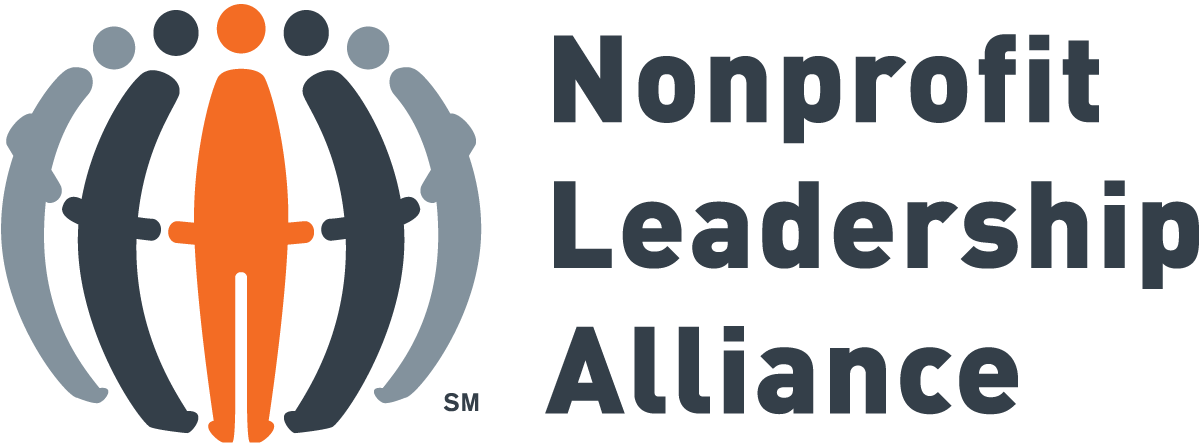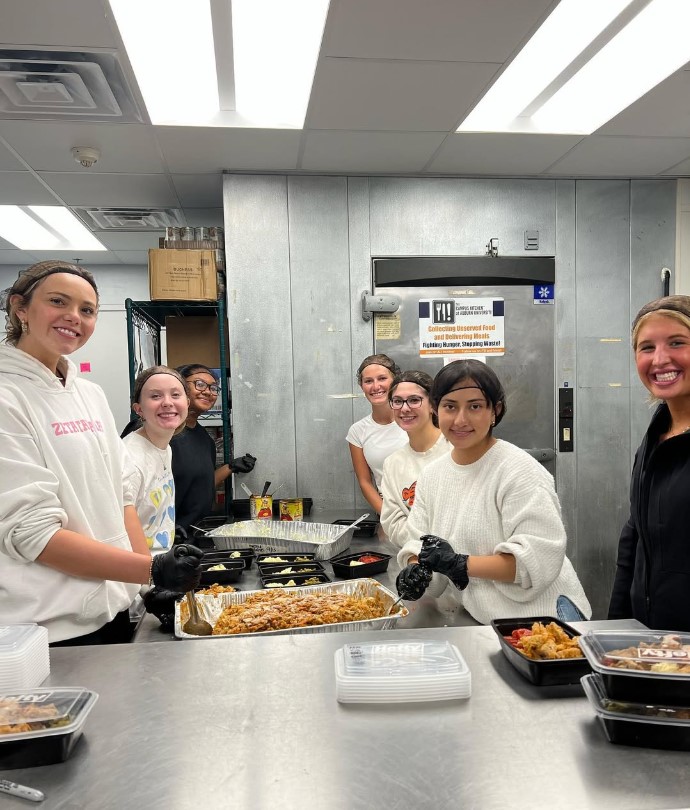The Philanthropy and Nonprofit Studies (PNPS) program offers a pathway for students to earn the Certified Nonprofit Professional (CNP) credential through the Nonprofit Leadership Alliance. The Auburn University College of Human Sciences is one of the campus partners of the Nonprofit Leadership Alliance offering this national certification for future leaders in the nonprofit and philanthropic sector.

The Nonprofit Leadership Alliance's national certification and CNP credential program allows students to connect their professional experiences with classroom learning. It helps signaling to nonprofit hiring managers students’ achievements and leadership potential through a nationally recognized credential in nonprofit management. The CNP credential can be earned with a B.S. in Philanthropy and Nonprofit Studies or in conjunction with the Philanthropy and Nonprofit Studies minor.
REQUIREMENTS
To earn the CNP credential, students must meet five core requirements:
Nonprofit knowledge and skills: Students take coursework on campus and supplement knowledge with the CNP Study Guide prior to sitting for the CNP Exam.
Volunteer service: 20 hours of service at a nonprofit organization.
Professional nonprofit experience: 120 paid or unpaid experience at a nonprofit organization.
Leadership development: Attend a national or regional conference related to the nonprofit sector. The Nonprofit Leadership Alliance offers an annual virtual conference, Elevate, that can satisfy this requirement.
Education: degree requirement to be fulfilled through the PNPS program.
COMPETENCIES
The Nonprofit Leadership Alliance has focused its certification on the competencies required for the success of nonprofit managers and leaders. While the list has evolved over the years, competencies remain at the center of the knowledge, skills, and abilities recognized by the CNP credential.
Communication, Marketing and Public Relations: Highlights knowledge, attitudes and activities that nonprofit organizations use to understand, inform and influence their various constituencies.
Cultural Competency and Diversity: Highlights the development of cultural competency preparation for professional practice in culturally diverse settings.
Financial Resource Development and Management: Highlights financial resource acquisition, budgeting, financial management, control and transparency in nonprofit organizations.
Foundations and Management of the Nonprofit Sector: Highlights the history, contributions and unique characteristics of the nonprofit sector and its management.
Governance, Leadership and Advocacy: Highlights the stewardship and advocacy roles, responsibilities and leadership of the board of directors, staff and volunteers in the development of policies, procedures and processes by which nonprofits operate and are held accountable.
Legal and Ethical Decision-Making: Highlights basic laws, regulations and professional standards that govern nonprofit sector operations, including a basic knowledge of risk and crisis management, ethics and decision-making.
Personal and Professional Development: Highlights the nature of employment in the nonprofit sector, from researching career opportunities, applying and interviewing for a job to continuing professional development.
Program Development: Highlights program design, implementation and evaluation strategies applicable to all nonprofits (youth services, arts, environment, health, recreation, social services, advocacy, etc.).
PATHWAY #1

Students can earn the CNP credential by completing all requirements of the B.S. in Philanthropy and Nonprofit Studies. Students will be enrolled in the CNP program when registering for CADS 4700 Portfolio Development, a required course in the PNPS major.
Through coursework of the PNPS major, students will:
The volunteer service requirement and the leadership development requirement will be completed (fully or in part) as extra-curricular activities, outside official coursework.
PATHWAY #2
Students can earn the CNP credential in conjunction with the Philanthropy and Nonprofit Studies minor by completing all requirements of the minor and CADS 4700 Portfolio Development. Students must select CADS 4700 Portfolio Development as one of the two Disciplinary Support courses to be enrolled in the CNP program.
Through coursework of the PNPS minor, students will:
The volunteer service requirement and the leadership development requirement will be completed (fully or in part) as extra-curricular activities, outside official coursework.
The Professional nonprofit experience requirement for the CNP credential can be fulfilled either with CADS 4920 Internship, required for the PNPS major, or CADS 4910 Practicum, required for the PNPS minor.
CADS 4920 Internship (9 credits): Supervised professional internship experience with a philanthropic or nonprofit organization for a minimum of 400 hours. Prerequisites: CADS 3780 or CADS 4040.
CADS 4910 Practicum in Philanthropy and Nonprofit Organizations (3 credits): Supervised practicum experience with a philanthropic or nonprofit organization for a minimum of 135 hours. Prerequisites: CADS 2700, CADS 3700, or departmental approval.
Extra-curricular activities are a cornerstone of the CNP credential. Students will complement the service-learning opportunities embedded in the coursework of both the PNPS major and the PNPS minor with extra-curricular activities.

The Student Philanthropy Board is a student leadership and mentoring initiative supported by the Women’s Philanthropy Board and is open to all Auburn University students. This organization is designed to support students who are seeking the Philanthropy and Nonprofit Studies minor or major at Auburn University and/or who aspire to work or volunteer in the nonprofit field following graduation.
To join the Student Philanthropy Board, click here: https://auburn.campuslabs.com/engage/organization/spb
Students can meet the Leadership Development Requirement by participating in a conference devoted to the nonprofit sector and philanthropy. The National Leadership Alliance offers a virtual conference, Elevate, every spring that fulfills this requirement. Students can register for the Elevate conference through the CNP Portal once they are enrolled in the CNP program.
Other conferences can also meet the Leadership development requirement. Examples include the Biennial Conference of the Nonprofit Academic Centers Council (NACC), the annual conferences of the Association for Research on Nonprofit Organizations and Voluntary Action (ARNOVA), or the national and regional conferences of the Association of Fundraising Professionals (AFC). At a regional level, the Nonprofit Summits organized by the Alabama Association of Nonprofits meets this requirement.
© 2026 College of Human Science • Consumer & Design Sciences. All Rights Reserved.